The image that came to mind when I started reading Silence Once Begun was of a performer setting up a massive plate-spinning act; hundreds of plates across a massive multi-tiered stage, with complex lighting, beautiful assistants, and a live orchestra. This is not a particularly unique experience in contemporary fiction that pays attention to all of the experiments and achievements of previous authors; after the structural, stylistic, and prosaic experiments and performances of modernism and post-modernism, a sense of daring and risk, a sense that at any moment it could all spectacularly collapse, bringing the stage, the pit, and the first three rows with it, should be assumed in literature. What was different about Silence, was I wasn't sure whether I wanted to see the plates spin or shatter. There is joy in watching the brilliantly complex unify itself into a brilliant simplicity (think Wallace, Danielewski, Egan) but there is also joy in watching the brilliantly complex totally fucking explode (think Pynchon, Blake Butler). Of course, one of the reasons I love Jesse Ball's work so much is how baffling and unexpected it can be. Though his previous two novels, The Way Through DoorsThe Curfew and , were more powerful in-the-moment-of-reading experiences there is something uniquely lingering about Silence Once Begun. By the end of the novel, Ball made the plates disappear.
The plot is relatively simple; after losing a bet, a young man signs a confession for a sensational crime he did not commit. He is tried, convicted, and executed. He remains silent for almost the entirety of his incarceration. Years later, a journalist named Jesse Ball, interviews the young man's family, “friends,” and a few of the public figures involved in the case, in part, to come to some understanding of the case and in part to better understand his disappearing relationship with his wife. From the plot Silence Once Begun could be about pretty much anything; justice, family, truth, identity, the power of language, the role of absence in all of the above, and yet is also seems to dismiss all of those themes and perhaps even the idea of themes all together. "Of silence, I can say only what I heard, that all things are known by that which they make or leave--and so speech isn't itself, but its effect, and silence is the same.” (186) So we are not really reading a book, so much as reading what the book makes or leaves within us.
The crime itself doesn't offer much thematic guidance to the reader; a series of mysterious disappearances of mostly elderly people in a single neighborhood with absolutely no evidence whatsoever of the kidnapper. No witnesses, no forensic evidence, no signs of forced entry. The only clue at each scene was a single card. The disappeared could represent anything you think has disappeared. And once the crime itself is described, it drops from the narrative. It is present, but somehow, you get the sense any crime could have been the crime; the point was elsewhere.
All of which makes this a very hard book to review. How do I communicate to you, in a way that is useful in your book decision making processing, the nature of this book, if I have very little sense of it myself? How do I access the quality of the book or give you to the tools to guess the quality of the book in relation to your taste, if I can't really tell you what it is about? For some readers, that's a ringing endorsement. For others, they might not be so sure. To make things stranger, this whispering, haunting, phantasm of a novel will be Ball's first hardcover release with perhaps the most marketing and publicity devoted to it by the publisher of any of his books. Someone thinks this is going to be his breakout book. I certainly hope it is.
And then there's the conclusion. Like the author's note at the end of The Handmaid's Tale, the conclusion to Silence reverberates back through the text, changing the value of the events we see. It isn't just that we get the actual villain's reasons for the crime and it isn't really that the mystery is explained. Instead there is, perhaps (and that “perhaps” might be what ensures Ball is read for decades to come), a powerful and pervasive statement about society in general. There's a chance that for all the focus on the emotions and personal relationships of the scenario; the book was actually always about justice. Or indifference. Or...something else. There is a chance that Ball not only made the plates disappear, but the stage as well.
Monday, January 27, 2014
Wednesday, January 15, 2014
The Pressures of a Really Good Notebook
When your family knows you're a writer you get notebooks for presents, especially when you are goddamn impossible to buy gifts for because you don't really want anything, except maybe books, but you work at a bookstore so it is folly to try to buy books for you. I still start a lot of projects by hand even though my penmanship is awful, so, it's pretty handy to get new notebooks roughly biannually. But notebooks are also very personal items. A notebook could be with me for years. I could be in physical contact with it for hundreds of hours over that time. When I'm writing in it, it is the most important object in my life. And if I think I have lost a particular notebook, the lexicon of my panic is equal parts “Ahhhhhhh! The words I have written!” and “Ahhhhh! The thing I have written my words in!” I've also been doing this long enough to develop habits, idiosyncrasies, and preferences, so that, though I always appreciate gifted notebooks, sometimes I get one and think “What the hell am I going to use this for?” (More on that later.)
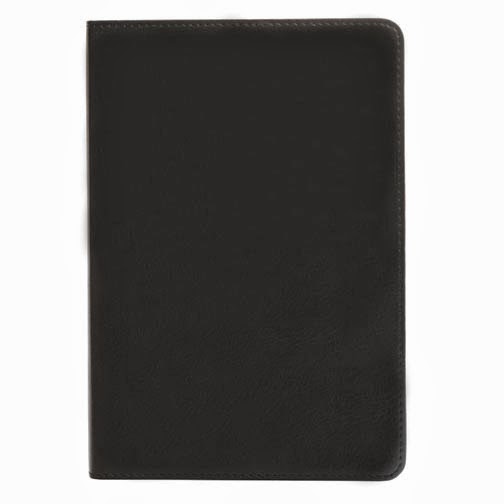 |
| This is a really good notebook. |
But sometimes the opposite is just as difficult. When I get a really good notebook, I feel pressure to write something that uniquely fits into the physics of that notebook. For example, pictured is a notebook I got this past Christmas. It has a nice weight to it, the flexible soft leather cover that has give and durability, and the lines are wide enough to accommodate my apocalyptically bad handwriting. Even though I'd probably describe it as pocket-sized, it is a little too large for an actual pocket, but would fit nicely in pretty much any sized bag, satchel, purse, etc. To put this another way, this notebook is absolutely begging for its own project.
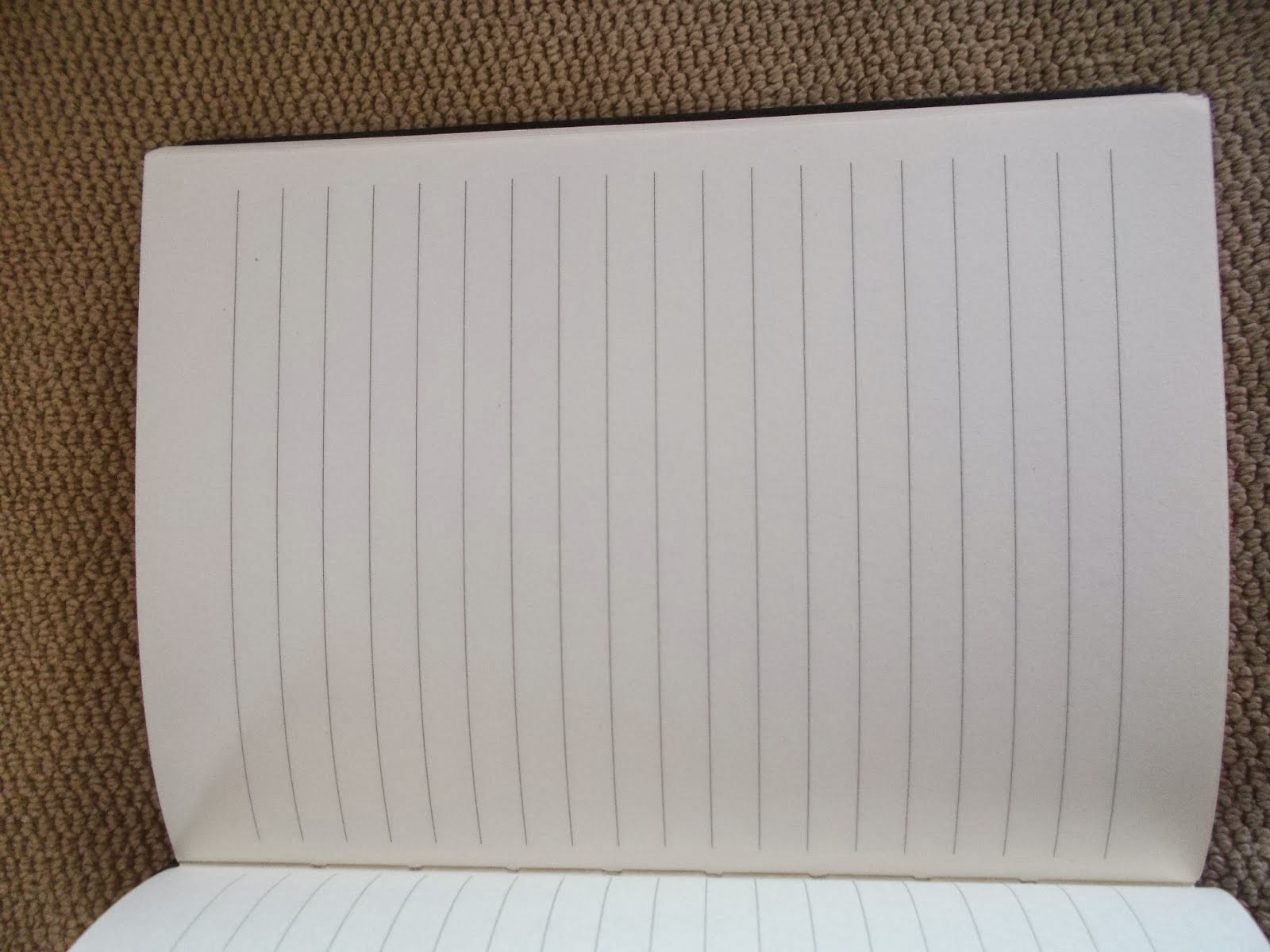 |
| O! The line spacing! |
 |
| No fuckin' way, dude. |
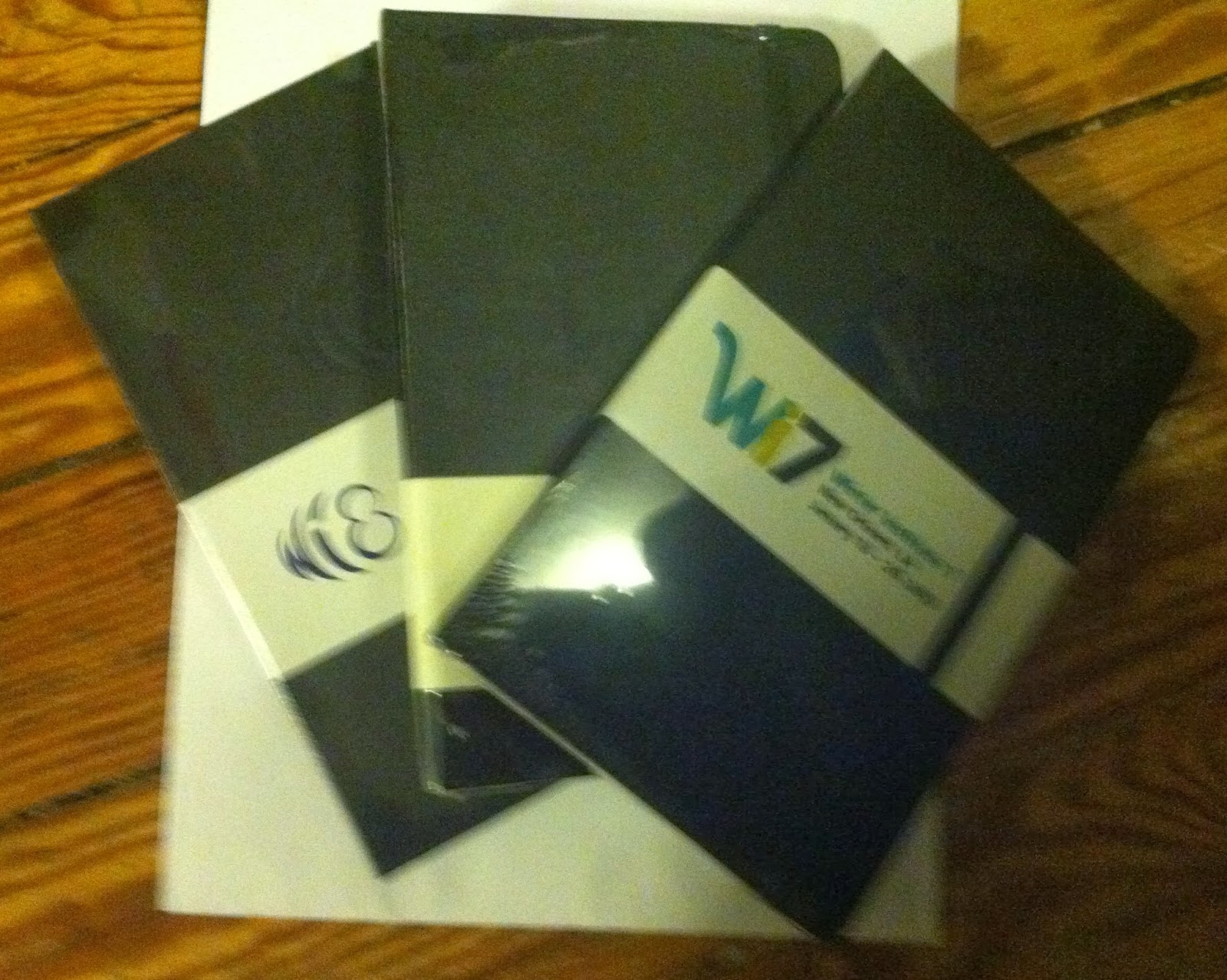 |
| Oh man, the keynote I will give if this becomes a real thing. |
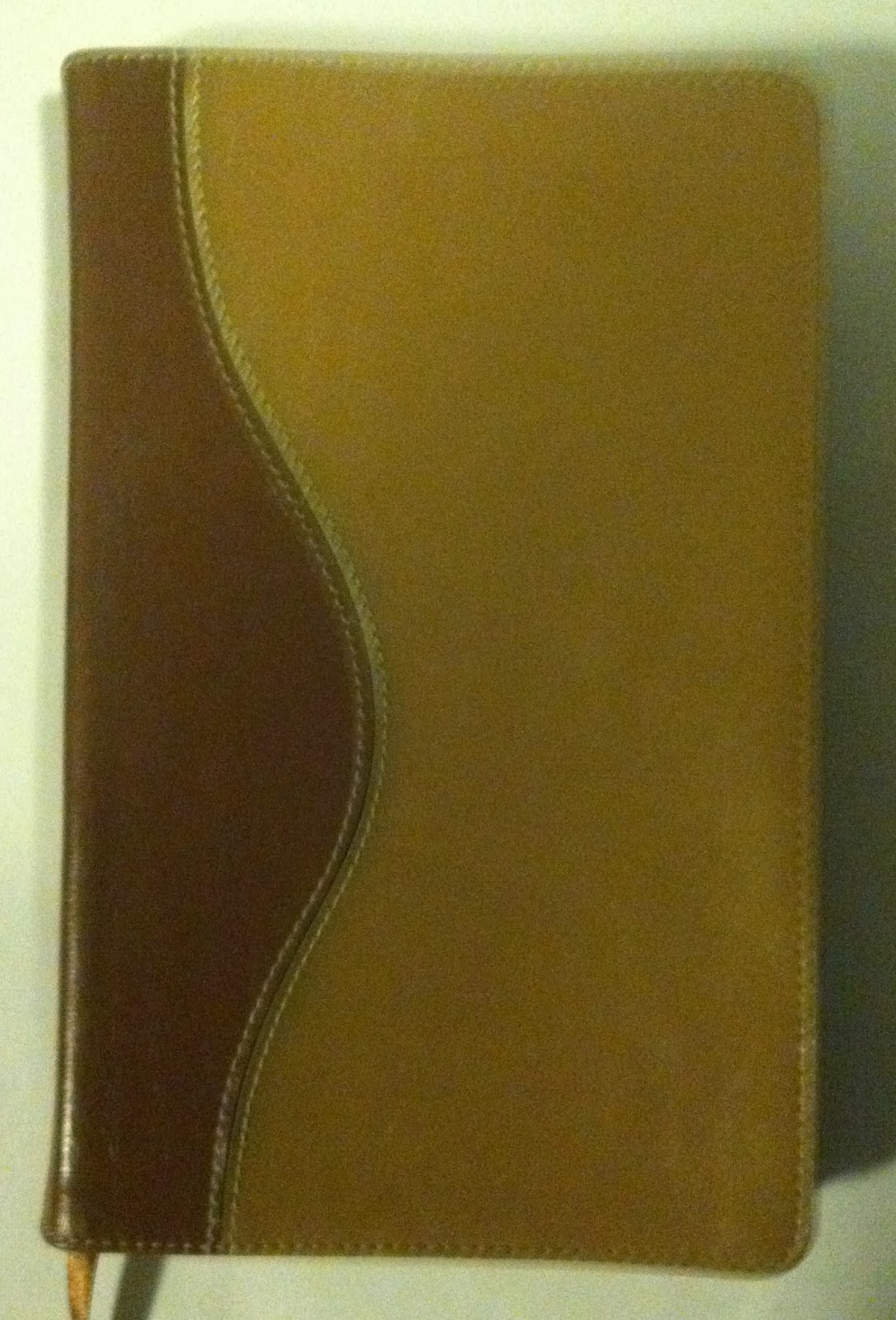 |
| Was 1/2 the union on strike? |
Of course, the problem with notebooks isn't always abundance. Sometimes, for absolutely rational reasons, none of the notebooks I have on hand are right for the project I want to start and I need, yes “need,” again for absolutely rational reasons, to buy one. Recently I started a project that had been in my head for ages, a collection of essays exploring The Maltese Falcon, and didn't have anything that made sense. Sometimes the search for a new notebook is stressful. Other times, my store sells dinosaur notebooks. And lo, the notebook envy did rain down upon me from all who beheld its splendor.
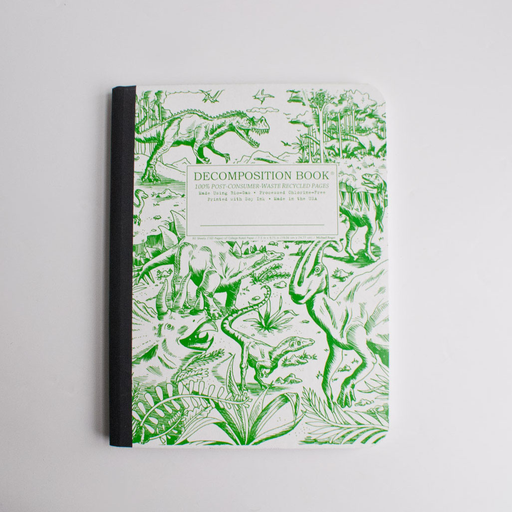 |
| Dinosaur Notebook, bitches! |
So the notebook that started this post is just sitting there on my desk, looking at me, describing to me the nature of the project that belongs in it. A novella maybe, crank out a pulp novella over a week or so, maybe, though until my novel is done I can't commit to anything like that, or maybe another long poem, as I've had success with those in the past, or maybe a journal for a long trip (it is an “Ecco World Traveler” after all), though I don't have one of those planned for a while, though it's not like it will decompose before my next one... So yes, right now, an object is talking to me.
We are emotional beings and we interact emotionally with, well, everything, including the objects in our world. The more emotions there are in whatever you are doing, and there are a lot of emotions in writing (and reading) the more likely you will form an emotional connection with the objects of that activity. (I'm pretty sure a few of my poems are sub-conscious odes to my USB Buckling Spring keyboard.) And the longer you have an object, the more it begins to take on an emotional character in your eyes. Essentially, the entire world is a container for out emotions. So, though in a very rational, practical, indisputable way, it is ridiculous to feel pressured by a particularly good notebook, in a human way, and in particular in a human writer way, it is perfectly natural.
Tuesday, January 7, 2014
Subsidized Content vs. Unsubsidized Content
This is an idea that I have been kicking around in my head for a little while, and though I can't say I've worked it out to the point where it is a full-fledged, submit to journals essay, I think I've brought it to the point where in needs to get out of my head for a little while and see what, if anything, other people think of this idea. (You know, aneurism prevention.) Basically, one of the defining coming conflicts in our economy is between subsidized content and unsubsidized content and how this conflict works out will determine what role artists, writers, journalists, and other creators have in our economy and whether anybody, with the exception of a few superstars or corporately anointed shills, will be able to actually make a comfortable living writing, critiquing, painting, singing, making movies... But first some definitions.
Unsubsidized content is content in which the ultimate (as in final or last) consumer pays the full cost of production and distribution of the content.
Subsidized content is content in which the ultimate (as above) consumer only pays a portion of the cost of production and distribution of the content and the rest of the cost is born by some other mechanism.
Once you start looking at how we buy the things we read, watch, and listen to, you discover that the vast majority of our content is actually subsidized. Perhaps the archetype of subsidized content is the newspaper. At time of publication a Sunday Boston Globe costs $3.50 even though it is the result of hundreds of hours of effort by dozens (or more) writers and editors, plus the hours of effort from the support staff, plus the cost of materials, plus the cost of distribution, plus the (rather tiny) cost of retail sales. I would really like to see someone break down what it actually costs to get a Sunday Boston Globe from the head of the editors to your door, but it isn't $3.50. The cost to consumers is subsidized (see what I did there) by advertising revenue. Obviously, the same goes for magazines that include advertising and pretty much all television. Whenever you see an ad attached to some kind of content, you see an example of subsidized content. But there are other ways to subsidize the cost of content to consumers. Once you look beyond the ad revenue model, you find even more subsidized content.
For example, the ticket prices at movie theaters are subsidized by concessions sales. As anyone who has ever bought bulk popcorn kernels knows, you don't get $10 worth of popcorn and butter flavoring in those buckets at the movie theater. The much higher margin on the concessions allows movie theaters to have a lower margin on reel costs and ticket prices. Much like TV, magazines, and newspapers, we generally understand that movie ticket prices are subsidized and accept it, to some degree as an inherent part of enjoying these particular kinds of content. We accept the ads in newspapers and the over-priced brown sugar water at the movie theater in exchange for having a lower content price point.
But we're seeing a new kind of subsidized content, one that, willfully or ignorantly, obscures the cost of content from consumers, cheapening it in their eyes, and making it more and more difficult for content producers to make a living. Books on Amazon are much cheaper than books at independent bookstores. This is not because of Amazon's business model, though they do reduce some distribution cost and thus can offer a not-insignificant discount that way, but because Amazon subsidizes that content through other means. They use profits from more profitable product and service sales, the strength of their stock on Wall Street, and outright capital losses, to subsidize the price of books they offer to consumers. This is similar to how Apple initially sold music on iTunes. There were some distribution and production reasons why a ten song album cost $15 at your local record store and $.99 a song on iTunes, but that lower price was also subsidized by iPod sales. The sales of a different product and the ability to absorb initial capital losses subsidized the price of the content.
Once you really start looking, about the only place you can find unsubsidized content (of the take home variety, as opposed to the go-to-Broadway variety which I'm not discussing here) is at indie bookstores. (And even then, there's probably a lot more subsidizing than you would expect. That book of poetry you're holding, probably even odds there's an NEA grant or prize or non-profit or charitable donation hanging out somewhere in the acknowledgments. And even then, there's always chatter about advertising in books.)
The goal of subsidized content is to present consumers with as low a price point as possible, whether or not that point reflects the cost of production and distribution. Essentially, subsidized content tricks consumers into believing content is cheap. However, this doesn't necessarily need to lead to conflict. In fact, one could argue there have been and continue to be great benefits to the subsidized content model. There's no reason why cheap content needs to create other problems in society.
The conflict is coming because the traditional ways of subsidizing many types of content are no longer adequate to support the creation of content. This problem first hit newspapers and hit newspapers the hardest. Under the newspaper model, advertisers paid for opportunity. They paid for the chance that their ad would be seen by hundreds, thousands, or maybe even millions of potential customers. It wasn't particularly efficient, but, in many ways, it was the only game in town. But internet advertising works much differently, to the delight of advertisers and the sorrow of newspapers. With online advertising you can generally either pay for impressions or clicks. Rather than paying for potential, advertisers are able to pay only for those potential customers who actually see the ads (impressions) or only for those potential customers who actually respond to their ads (clicks). It is vastly more efficient for advertisers and vastly less profitable for newspapers. In abstract theory, given how little consumers have always paid for newspapers it really shouldn't have mattered whether the content was read for free online or paid for in physical form, but, the mechanical differences of online advertising made it catastrophic.
For the moment, the other major advertising revenue subsidized content, TV, is finding ways to work within these new mechanics, so much so that online services like Netflix and Hulu are actually able to produce their own content as well as distribute the content of others. We just watch so much damn TV, so much of the time, that the advertising revenue, even if it is in smaller internet sized chunks, and when augmented by subscriptions for premium services, is enough to continue to fund production and distribution. Throw in the fact that DVDs made it possible for people to reasonably buy TV shows and that cable companies control what they sell to you, and you have something that looks, for the moment, to be a stable model of content production and distribution.
But naturally, advertisers are going to look for more efficient (i.e. cheaper) ways to advertise. So for example, why spend money on an ad played on the radio when you can only estimate how many people will hear it, when you can spend less money at Pandora or Spotify for an exact number of people (living in an exact region of the world, probably of an exact age and gender) to hear your ad? And if these sites tend to pay far less in royalties to the content producers than traditional radio stations, well, that really isn't your concern. Is it really that hard to imagine someone developing software that tracks how many shows are DVR'ed versus watched live and would it be that irrational for advertisers to demand lower rates for their ads that end up being fast-forwarded through? Will the ability to hyper-target reduce ad revenue even more? And, if so, will, like writers and musicians, TV producers be willing to just keep on making TV even as their personal earnings sag. (Or will we see an even greater shift to the lower-production cost of reality TV, as has happened on the History Channel, the Discovery Channel, and others.)
So what is at stake? There are some types of content that are going to continue to be produced no matter what the economics of their production and distribution are. Books, stories, and poems will be written. Paintings will be painted. Art will be made. Music will be played. But some content won't be, no matter how important it might be to society. We have already seen a catastrophic attrition of journalism, one that greatly hinders our ability to be citizens. Will high-quality (or at least high budget) TV shows continue to be made, if the advertising revenue that supports them erodes like it did with newspapers? Or if content producers are forced to shift to more subscription based models (not necessarily a bad thing) will people used to not paying for specific TV shows, make the switch fast enough for the economy to adjust? Though books will be written, if Amazon absorbs the whole publishing industry, what books will get wide distribution and why? There is absolutely a chance that the economics of subsidized and unsubsidized content work themselves out in such a way that society gets the content it needs to function (which, in a democracy, it does need) and content producers get to eat and pay rent and there is a chance that our content production ends up almost completely centralized in massive, sociopathic corporations.
There are a lot of different potential solutions to the precariousness of contemporary subsidized content. Furthermore, much of the challenge of unsubsidized content comes, not from the cost of the content itself but from our radically unjust economic system ensures that Americans have much less money to spend on content than they have had in the past. Expensive content isn't necessarily a problem when most people have some money left over after eating.
But here's what's interesting about how we value content. Amazon got to where it is now because people want books. Apple got to where it is now because we want music. People came to Amazon for the books and, if you'll note, pretty much all of their major public announcements are in some way book related. Even though they don't separate books from other media in their profit reports, even though they consistently lose money on books, even though they sell absolutely everything, Amazon wants us to think about them, when we think about books. We go to Amazon for the books, we stumble upon the lawn chairs and lingerie. And the problem with newspapers wasn't that people stopped reading newspapers. They just read them in a way that didn't pay for production. This tells me that there is an inherent desire for human creation. Which tells me there is a chance we can be convinced to pay what content is worth, once we figure out how to make sure we all have enough money to do so.
Unsubsidized content is content in which the ultimate (as in final or last) consumer pays the full cost of production and distribution of the content.
Subsidized content is content in which the ultimate (as above) consumer only pays a portion of the cost of production and distribution of the content and the rest of the cost is born by some other mechanism.
Once you start looking at how we buy the things we read, watch, and listen to, you discover that the vast majority of our content is actually subsidized. Perhaps the archetype of subsidized content is the newspaper. At time of publication a Sunday Boston Globe costs $3.50 even though it is the result of hundreds of hours of effort by dozens (or more) writers and editors, plus the hours of effort from the support staff, plus the cost of materials, plus the cost of distribution, plus the (rather tiny) cost of retail sales. I would really like to see someone break down what it actually costs to get a Sunday Boston Globe from the head of the editors to your door, but it isn't $3.50. The cost to consumers is subsidized (see what I did there) by advertising revenue. Obviously, the same goes for magazines that include advertising and pretty much all television. Whenever you see an ad attached to some kind of content, you see an example of subsidized content. But there are other ways to subsidize the cost of content to consumers. Once you look beyond the ad revenue model, you find even more subsidized content.
For example, the ticket prices at movie theaters are subsidized by concessions sales. As anyone who has ever bought bulk popcorn kernels knows, you don't get $10 worth of popcorn and butter flavoring in those buckets at the movie theater. The much higher margin on the concessions allows movie theaters to have a lower margin on reel costs and ticket prices. Much like TV, magazines, and newspapers, we generally understand that movie ticket prices are subsidized and accept it, to some degree as an inherent part of enjoying these particular kinds of content. We accept the ads in newspapers and the over-priced brown sugar water at the movie theater in exchange for having a lower content price point.
But we're seeing a new kind of subsidized content, one that, willfully or ignorantly, obscures the cost of content from consumers, cheapening it in their eyes, and making it more and more difficult for content producers to make a living. Books on Amazon are much cheaper than books at independent bookstores. This is not because of Amazon's business model, though they do reduce some distribution cost and thus can offer a not-insignificant discount that way, but because Amazon subsidizes that content through other means. They use profits from more profitable product and service sales, the strength of their stock on Wall Street, and outright capital losses, to subsidize the price of books they offer to consumers. This is similar to how Apple initially sold music on iTunes. There were some distribution and production reasons why a ten song album cost $15 at your local record store and $.99 a song on iTunes, but that lower price was also subsidized by iPod sales. The sales of a different product and the ability to absorb initial capital losses subsidized the price of the content.
Once you really start looking, about the only place you can find unsubsidized content (of the take home variety, as opposed to the go-to-Broadway variety which I'm not discussing here) is at indie bookstores. (And even then, there's probably a lot more subsidizing than you would expect. That book of poetry you're holding, probably even odds there's an NEA grant or prize or non-profit or charitable donation hanging out somewhere in the acknowledgments. And even then, there's always chatter about advertising in books.)
The goal of subsidized content is to present consumers with as low a price point as possible, whether or not that point reflects the cost of production and distribution. Essentially, subsidized content tricks consumers into believing content is cheap. However, this doesn't necessarily need to lead to conflict. In fact, one could argue there have been and continue to be great benefits to the subsidized content model. There's no reason why cheap content needs to create other problems in society.
The conflict is coming because the traditional ways of subsidizing many types of content are no longer adequate to support the creation of content. This problem first hit newspapers and hit newspapers the hardest. Under the newspaper model, advertisers paid for opportunity. They paid for the chance that their ad would be seen by hundreds, thousands, or maybe even millions of potential customers. It wasn't particularly efficient, but, in many ways, it was the only game in town. But internet advertising works much differently, to the delight of advertisers and the sorrow of newspapers. With online advertising you can generally either pay for impressions or clicks. Rather than paying for potential, advertisers are able to pay only for those potential customers who actually see the ads (impressions) or only for those potential customers who actually respond to their ads (clicks). It is vastly more efficient for advertisers and vastly less profitable for newspapers. In abstract theory, given how little consumers have always paid for newspapers it really shouldn't have mattered whether the content was read for free online or paid for in physical form, but, the mechanical differences of online advertising made it catastrophic.
For the moment, the other major advertising revenue subsidized content, TV, is finding ways to work within these new mechanics, so much so that online services like Netflix and Hulu are actually able to produce their own content as well as distribute the content of others. We just watch so much damn TV, so much of the time, that the advertising revenue, even if it is in smaller internet sized chunks, and when augmented by subscriptions for premium services, is enough to continue to fund production and distribution. Throw in the fact that DVDs made it possible for people to reasonably buy TV shows and that cable companies control what they sell to you, and you have something that looks, for the moment, to be a stable model of content production and distribution.
But naturally, advertisers are going to look for more efficient (i.e. cheaper) ways to advertise. So for example, why spend money on an ad played on the radio when you can only estimate how many people will hear it, when you can spend less money at Pandora or Spotify for an exact number of people (living in an exact region of the world, probably of an exact age and gender) to hear your ad? And if these sites tend to pay far less in royalties to the content producers than traditional radio stations, well, that really isn't your concern. Is it really that hard to imagine someone developing software that tracks how many shows are DVR'ed versus watched live and would it be that irrational for advertisers to demand lower rates for their ads that end up being fast-forwarded through? Will the ability to hyper-target reduce ad revenue even more? And, if so, will, like writers and musicians, TV producers be willing to just keep on making TV even as their personal earnings sag. (Or will we see an even greater shift to the lower-production cost of reality TV, as has happened on the History Channel, the Discovery Channel, and others.)
So what is at stake? There are some types of content that are going to continue to be produced no matter what the economics of their production and distribution are. Books, stories, and poems will be written. Paintings will be painted. Art will be made. Music will be played. But some content won't be, no matter how important it might be to society. We have already seen a catastrophic attrition of journalism, one that greatly hinders our ability to be citizens. Will high-quality (or at least high budget) TV shows continue to be made, if the advertising revenue that supports them erodes like it did with newspapers? Or if content producers are forced to shift to more subscription based models (not necessarily a bad thing) will people used to not paying for specific TV shows, make the switch fast enough for the economy to adjust? Though books will be written, if Amazon absorbs the whole publishing industry, what books will get wide distribution and why? There is absolutely a chance that the economics of subsidized and unsubsidized content work themselves out in such a way that society gets the content it needs to function (which, in a democracy, it does need) and content producers get to eat and pay rent and there is a chance that our content production ends up almost completely centralized in massive, sociopathic corporations.
There are a lot of different potential solutions to the precariousness of contemporary subsidized content. Furthermore, much of the challenge of unsubsidized content comes, not from the cost of the content itself but from our radically unjust economic system ensures that Americans have much less money to spend on content than they have had in the past. Expensive content isn't necessarily a problem when most people have some money left over after eating.
But here's what's interesting about how we value content. Amazon got to where it is now because people want books. Apple got to where it is now because we want music. People came to Amazon for the books and, if you'll note, pretty much all of their major public announcements are in some way book related. Even though they don't separate books from other media in their profit reports, even though they consistently lose money on books, even though they sell absolutely everything, Amazon wants us to think about them, when we think about books. We go to Amazon for the books, we stumble upon the lawn chairs and lingerie. And the problem with newspapers wasn't that people stopped reading newspapers. They just read them in a way that didn't pay for production. This tells me that there is an inherent desire for human creation. Which tells me there is a chance we can be convinced to pay what content is worth, once we figure out how to make sure we all have enough money to do so.
Subscribe to:
Posts (Atom)

